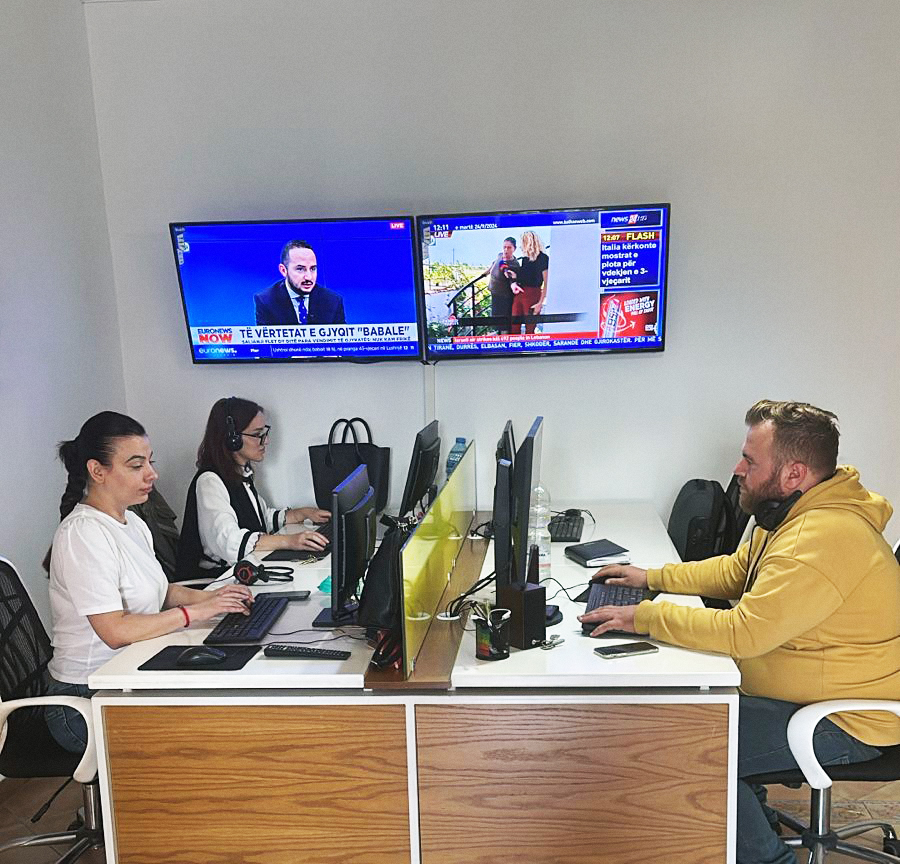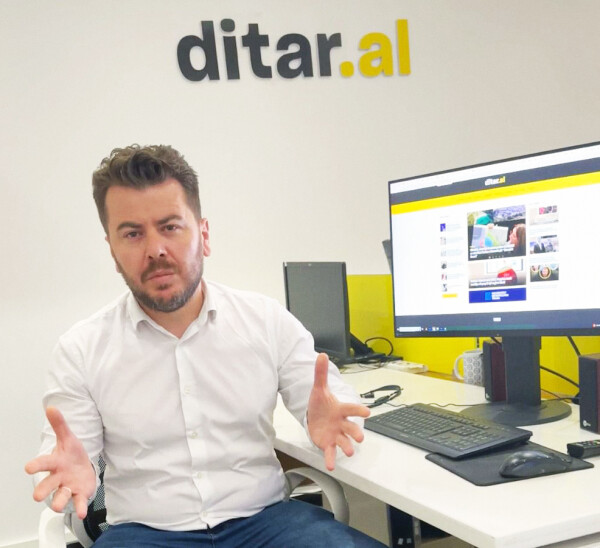
“In Albania, we have an unwritten code of silence. Even on the big issues. Our idea was to create a space to speak about the truth and about the issues that aren’t addressed in mainstream media,” says Erald Kapri, a renowned journalist, activist, and scholar, speaking of Ditari Media, the independent online media he founded last year.
Based in Tirana, Albania, Ditari Media focuses on reporting on anti-corruption, human rights and abuse of power, important topics in a country, where as Erald explains, Albania's communist dictatorship has left a profound impact on society and culture and has shaped the relation of people to power and to the media.
That's why he has focused his research on the communist era in Albania and its aftermath.
“People here are afraid to speak. They have this idea that you should be afraid of your government and never raise issues. This is part of our culture, and this came from the communist era,” he says.
He explains that this culture of silence, combined with a market dominated by an oligopoly where 90 percent of media outlets and TV stations are controlled by the government and all the main businesses are owned by a handful of entrepreneurs with political ties, has fostered high levels of corruption and has stifled media plurality.
“We might have a lot of media outlets in Albania, but that doesn't mean that we are more plural. In fact, we are much more controlled. That's why it's important we have independent voices speaking about the issues that Albanian society deals with,” he says.
Erald relates that a lack of economic opportunities is driving young Albanians to seek opportunities abroad. The ‘European Dream’ of EU integration is no longer sufficient to keep them at home. Many are learning foreign languages and taking advantage of visa liberalisation to improve their chances of finding opportunities outside the country.
“Democracy in Albania is in recession. According to Transparency International, we are the most corrupt country in Europe and according to the OSCE, we have one of the lowest incomes per citizen in Europe," he notes.

Ditari Media’s goal is to be a window to the truth. The team’s in-depth investigative journalism has uncovered multiple corruption scandals and cases of abuse of power that typically go unreported in mainstream media. Several of these investigations have been central to the prosecution of corrupt politicians and business personalities, and have exposed high profile authoritarianism and favouritism in the government, such as a recent report on meal allowances for police officers.
Erald relates that he and his team hold themselves to high ethical standards, despite dealing with threats and bribes meant to sway their reporting. This independence means their journalists can produce original content that tackles topics usually underreported due to political or financial pressures.
Ditari Media also provides a platform for other journalists, especially those working in government-owned media platforms, to publish anonymously without fearing backlash. By doing this, Ditari highlights the issues that are often silenced and supports a community of journalists committed to uncovering the truth.
Despite being a small team, Ditari Media manages to generate a large amount of content—around 40 articles and 3 to 4 videos on social media each day—earning them a big online following. They have thousands of views on social media, and their videos get millions of views. Erald explains that more and more citizens are coming to them with stories and testimonies. “We receive lots of emails from people who write to us about different issues because they trust us and they know that we will publish their stories.”
EED's support at the beginning of Ditari Media's existence was a game changer for the media. "It meant we didn’t have to worry about our finances, we were able to focus on our content”, says Erald.
He admits that today, the media's main challenge is to achieve sustainable financial independence. It remains challenging to attract advertising, despite a wide readership, as companies fear a backlash from the government for working with what is viewed as an anti-government opposition outlet.
Today, Erald is proud of what his team has been able to achieve in just one year and he is hopeful that Ditari Media will continue to grow. He is very aware of the challenges ahead.
“Unfortunately, freedom of expression and democracy in Albania is becoming smaller and smaller. As a society that grew up in a dictatorship, we need independent voices to speak about issues. Otherwise we will never have democracy. I feel like we are one of the first stones helping to build a wall to protect democracy in Albania,” he says.